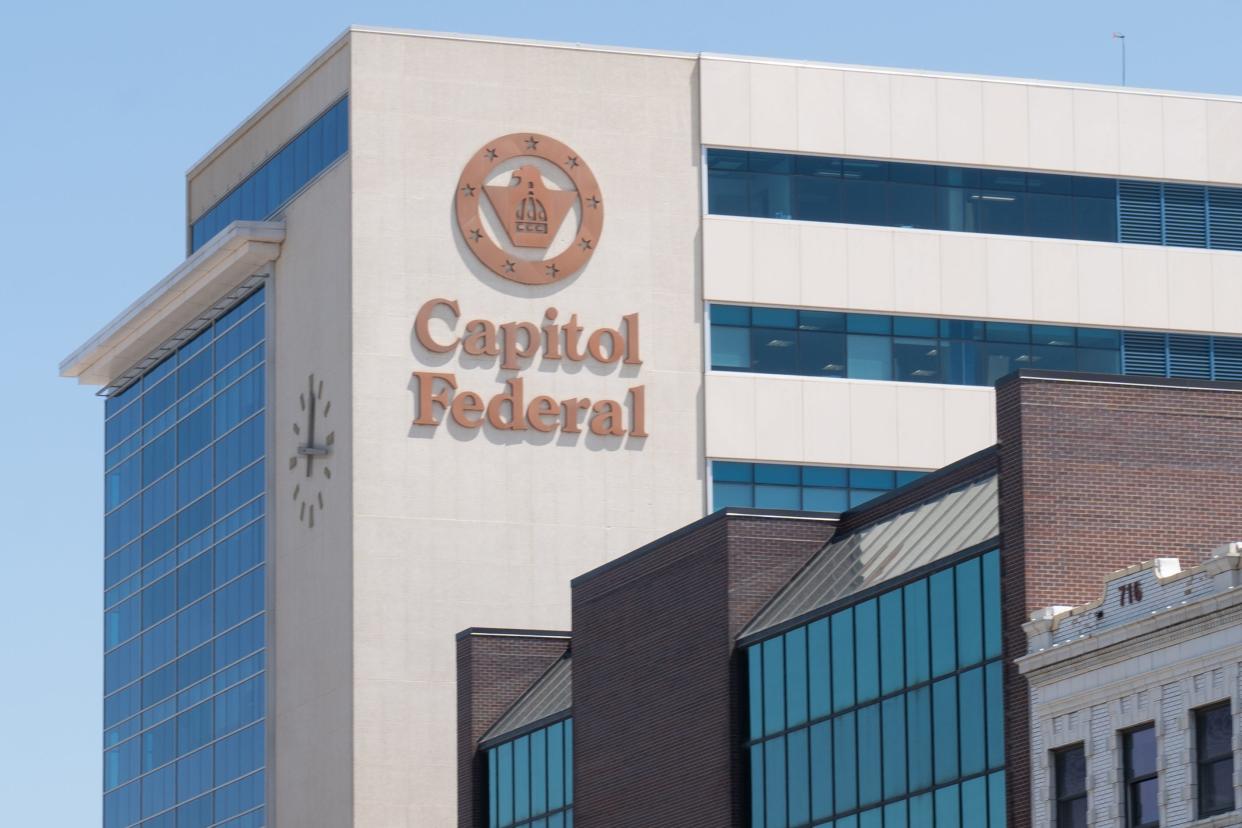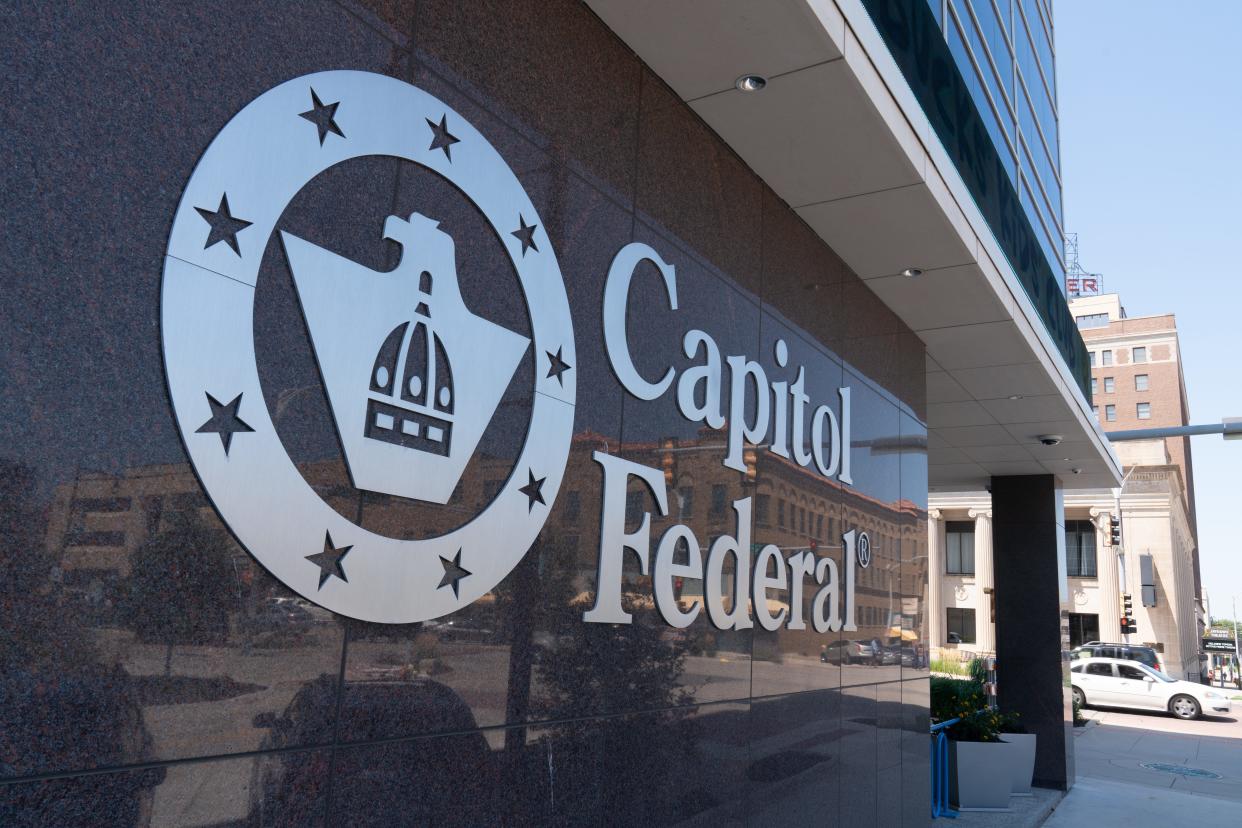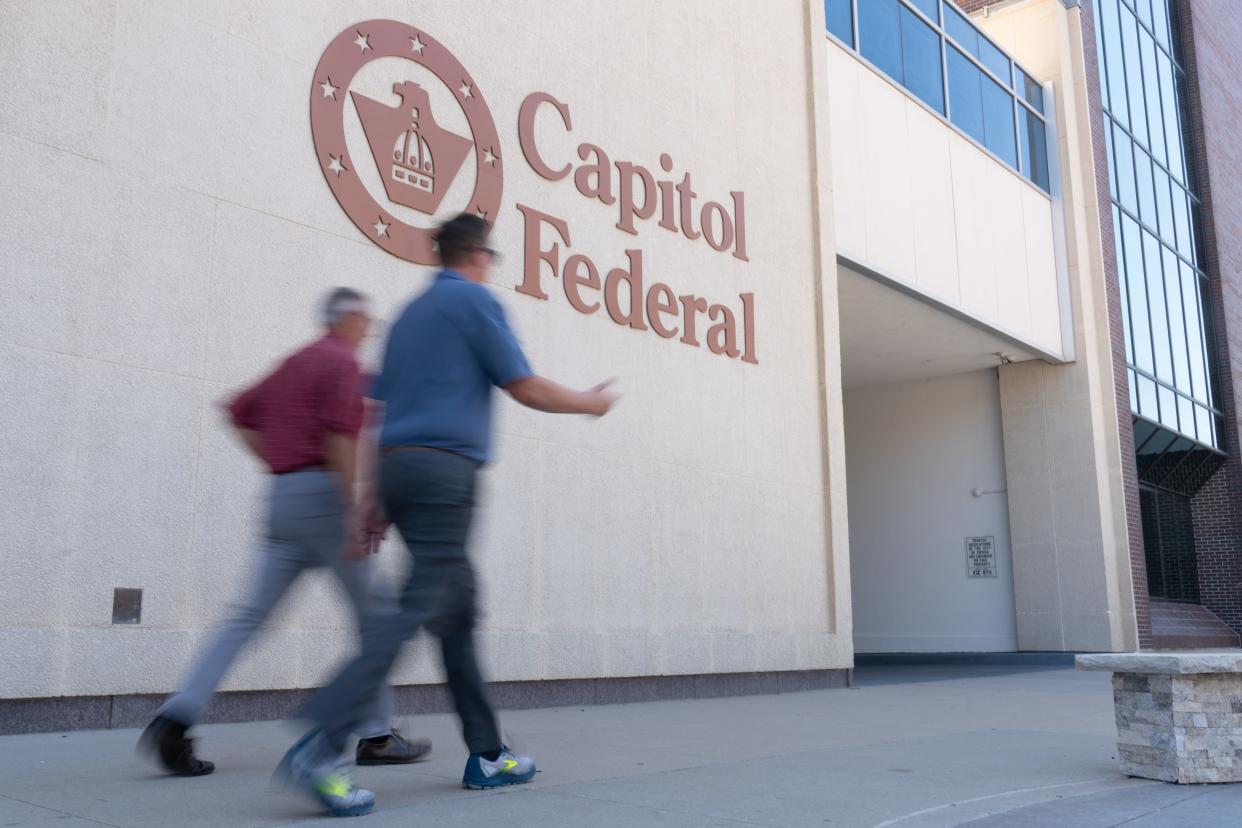CapFed tells investors the Fed's interest rate hikes are eating into Kansas bank's profits
As the Federal Reserve again raised interest rates, Capitol Federal told investors that rate hikes are eating into profits of the Topeka-based bank.
Despite waning inflation, the Fed increased its key rate by a quarter of a percentage point on Wednesday — hitting its highest level in 22 years — and the country's central bank signaled another rate hike may come later this year.
Meanwhile, Capitol Federal reported its quarterly earnings to stockholders on Wednesday, telling investors that the Fed's rate hikes and related market forces are to blame for lower profits.
"The rapid increase in short-term rates led by the Federal Reserve and the resulting inverted yield curve has caused decreases in the Bank's net interest margin," company executives wrote.

Net interest margin is a measure of interest income generated by banks compared to interest expenses paid out to lenders.
"The continued net interest margin compression is due to the Federal Reserve continuing to increase short-term interest rates," executives wrote, "which is impacting the shape of the yield curve, the pace at which liabilities are repricing compared to assets, and deposit funds moving from lower costing deposit accounts to certificates of deposit."
Capitol Federal Financial Inc., which is the parent company of Capitol Federal Savings Bank, is headquartered in Topeka. The bank has 51 branch locations in Kansas and Missouri and describes itself as "one of the largest residential lenders" in Kansas.
While rising interest rates mean you will pay more to buy a house, the bank isn't necessarily making more profit.
Stockholder dividends exceed profits
While the company saw its total income increase during the past quarter, its net income — or profit — dropped due primarily to higher deposit interest expenses.
The company made $8.3 million in net income, or $0.06 per share, during the calendar quarter that ended June 30, compared to $14.2 million for the quarter ending March 31.
Stockholders will still be paid cash dividends of $0.085 per share, totaling $11.3 million, per a Tuesday announcement.
Meanwhile, employee compensation was up $411,000 in the quarter thanks mainly to merit pay raises. However, employee salaries and benefits are down $2.6 million over the current nine-month period, which was attributed to a decrease in incentive compensation and lower loan commissions due to fewer new loans.
The company has $10.3 billion in total assets, though executives plan to get the figure back below $10 billion, which is an important regulatory threshold.
Your savings are earning higher interest rates

The bank reported that it has increased interest rates it pays to depositors in an effort to stop people from pulling their money out.
"There has been a runoff in deposit balances and management has increased certificate of deposit and money market account rates to help mitigate the outflow," executives wrote.
Financial condition reporting shows the bank's $6.1 billion in deposits as of June 30 was down about $51.6 million from three months ago and down $102 million compared to the previous nine-month period.
Non-maturity deposits — such as checking, savings and money market accounts — dropped $217.6 million during the quarter. That was partially offset by $165.7 million more in certificates of deposit.
The bank had previously held a promotional campaign for CDs, prompting some customers to transfer existing deposits into CDs. The additional drop in non-maturity deposits was blamed on customers moving their money to higher-yielding investment products and withdrawing funds for spending.
Home mortgage interest rates are going udsp
Borrowers are paying more for their loans, but doesn't necessarily mean the bank is pocketing greater profit.
While the company is adding loans at market interest rates that are higher than the bank's overall loan portfolio, "The pace at which the interest rate increases are occurring for liabilities is more than offsetting the benefit of the higher loan rates."
The bank's average rate for a home loan originated in the past quarter was 5.78%. That compares to 3.33% for the full portfolio of home mortgages originated by the bank.
More: Another Fed rate increase may hurt borrowers, but savers might cheer. Here's why.
The company expects slower growth or no growth in home loans, and homeowners who opt to stay put with their current mortgage mean the bank can't replacing those lower-rate loans with new ones at higher rates.
"Higher mortgage loan rates have made the purchase of homes less affordable, which lowers the likelihood of existing one- to four-family loans at lower rates being paid off as a result of housing turnover," executives wrote.
The bank's loan portfolio has seen a shift in the mix of commercial real estate and construction loans, which are increasing, and home loans, which are decreasing.
"The Bank continues to receive good commercial loan opportunities from strong borrowers," executives wrote.
CapFed cites no specific fears of a bank run

Capitol Federal executives made no explicit mention of any ill effects of the bank runs and subsequent bank failures at Silicon Valley Bank, Signature Bank and First Republic Bank this spring. They did say their forward-looking statements involve risks, including "the impact of bank failures or adverse developments at other banks and related negative press about the banking industry in general on investor or depositor sentiment."
Executives did say they exceeded all internal risk policy thresholds and federal requirements.
More: Amid Silicon Valley Bank struggles, regulator says Kansas banks remain sound
"Consistent with our goal to operate a sound and profitable financial organization, we actively seek to maintain a well-capitalized status for the Bank in accordance with regulatory standards," executives wrote.
Jason Alatidd is a statehouse reporter for the Topeka Capital-Journal. He can be reached by email at jtidd@gannett.com. Follow him on Twitter @Jason_Alatidd.
This article originally appeared on Topeka Capital-Journal: Capitol Federal dividends exceed bank profits amid interest rate hikes


